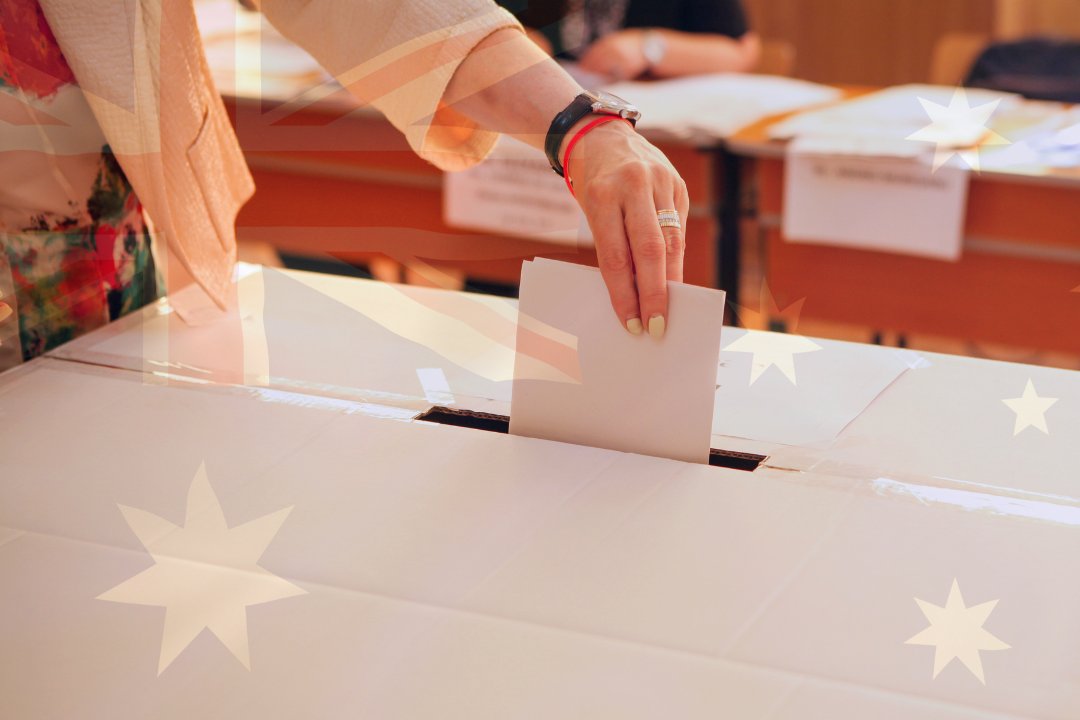

I’ll go to my local polling place tomorrow and politely take every piece of “how to vote” material from party workers. These pieces of paper will be kept for my records. I’ll bring my own “how to vote” leaflet with me, made for for own purpose only. However, more importantly I plan to ask the Australian Electoral Commission to give me the actual ballot papers. I expect them to comply after a three-month wait. That waiting period is due to their need to keep all this matrerial just in case there is a legal challenge to the result for the ACT Senate contest or for the contest to elect one member to the House of Representatives for the Division of Canberra in which I am enrolled.
With the use of the actual ballot papers I intend to post my votes on my website. I have done that for the 2016, 2019 and 2022 elections for the Senate. This time I’ll do it for both my ballot papers and I now explain the reasoning for my votes.
In the case of the Senate, my vote will be exactly the same as in 2016, 2019 and 2022. It will also be exactly the same as it would have been if I had lived in a state, not in Canberra. The point is that I don’t feel strongly about any of the candidates, but I reject the ballot paper because I see it as dishonest and voter unfriendly. Contrary to the claims of its supporters, the Senate ballot paper has not been designed according to any democratic principle. It has been concocted by the machines of big political parties to confer a benefit upon themselves, that benefit being the guarantee it gives that any Senate places they win will go to the party machine’s choice of order. The ballot paper has manipulated the vote to ensure the party’s voters do their duty to the machine. For example, Senator Hollie Hughes (Liberal, NSW) will find her term expiring in July because she has been placed in the unwinnable fourth spot on the Coalition’s NSW ticket. She had hoped to be placed second and be re-elected.
My Senate vote will be deliberately informal – my way of shouting “I do not accept this dishonest ballot paper”. I’ll write on the top: “These party boxes should be scrapped.” Above the thick black line I’ll write: “This contrivance should be scrapped.” On the lower left-hand corner, I’ll draw an arrow pointing to the instructions and write this comment: “These instructions are deceitful.” Then, along the bottom I’ll write: “I refuse to be manipulated by the machines of big political parties”, signed Malcolm Mackerras.
Why do I say the instructions are deceitful? These are the facts. For the above-the-line vote a single first preference for a party is required by law to be counted as a formal vote. For the below-the-line vote six consecutive preferences between candidates are required by law to be counted as a formal vote. Therefore, polling officials tell lies when they say to voters: “You need to number at least six boxes” and “You need to number at least 12 boxes.” Most polling officials would not know that they are telling lies. The few that do simply tell me that they signed up with the AEC which imposed conditions about what they must say to the voters they meet.
The truth is that the politicians who voted for the so-called “democratic reform” implemented by the Commonwealth Electoral Amendment Act 2016 actually WANTED voters to believe that “1” only ATL votes are informal. The AEC has made its preference clear. Its duty to the politicians in that regard over-rides its duty to tell voters the truth. Some of this lying is defended by supporters of the AEC and I acknowledge that if the Electoral Commissioner did everything I want he would be breaking the law. I insist, however, that he has gone beyond what is required by the law. For example, the law does not ask polling officials to tell voters how they must vote. It merely requires polling officials to ask appropriate questions of voters to prevent multiple voting.
Since this system was implemented in 2016, I have written letters of complaint to the Electoral Commissioner about his official guide to general elections – because of his dishonesty in treating the Senate vote. The same applies to the current “Your official guide to the 2025 federal election: Saturday 3 May 2025.” It tells the usual lies and pumps out the usual misinformation and then says: “Did you know you can practise voting on the AEC website? Go to aec.gov.au/practise”. I did that and noticed the example given of a ballot paper with a single number “1” for a party ATL. The AEC then asserts: “Your vote would NOT be counted”. That is a straight out lie but is elaborated thus: “You need to number at least 6 boxes consecutively in the order of your choice above the line. Try again.”
Although I have been critical of the AEC for its handling of the 2016, 2019, 2022 and 2025 general elections, I have been just as admiring of the way it has handled by-elections. The best has been “Your official guide to the Eden-Monaro by-election including COVID-19 safety measures: Saturday 4 July 2020.” It has a special message from the then Electoral Commissioner, Tom Rogers. So, why commendation in one case and condemnation in the other? Answer: the ballot paper for the House of Representatives is honest.
To be consistent between the two houses of federal parliament, I have decided that I might just as well post my House of Representatives vote on my website when, in three months time, the AEC sends me these ballot papers for education purposes. My vote may be of interest to some. I begin by saying that I have goodwill towards Albanese and his government. Indeed, so much so that I can think of only one piece of legislation passed by the 47th Parliament which excited my opposition. I objected to the abolition of the Australian Building and Construction Commission. On that subject I have always agreed with the Liberal Party’s view and disagreed with Labor’s. However, on all current policy questions except defence I presently agree with Labor. On defence I am astonished at the reality that the Liberal Party has made so little of its superior policy. Apart from the deficiency of our defences, I think Australia is travelling in the right direction.
There are six candidates on my House of Representatives ballot paper. In order they are Isabel Mudford of the Greens, Mary-Jane Liddicoat of the party known as HEART, the independent Claire Miles, the Liberal Will Roche, Labor’s sitting member Alicia Payne and on the bottom Teresa McTaggart of the Animal Justice Party. I will give my first preference to Payne, second to Roche, third to McTaggart and fourth to Miles.
I disapprove of both the present-day Greens political party and of the anti-vaxer party known as HEART which is short for Health, Environment, Accountability, Rights and Transparency. I think of myself as voting against both of them – but I must choose in which square to place the number “5”. Otherwise my vote would be informal. I have decided to place my “5” beside Liddicoat and to leave the box for Mudford without any number. The purpose of that is to indicate there is a “savings” provision in the Commonwealth Electoral Act. If all candidates but one are numbered consecutively and one left unmarked then the vote is counted as a formal vote. Under the counting rules, therefore, my vote will be read as though I had placed the number “6” in the square beside Mudford.